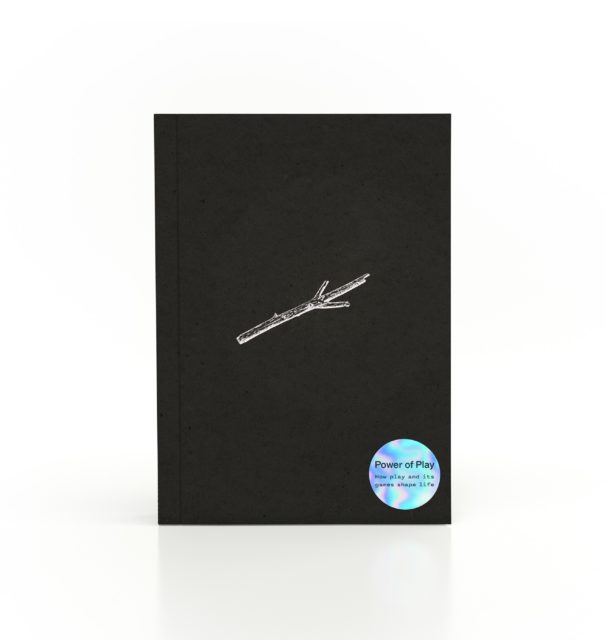Play is actually the USP of being human, according to Paul Pethick, author and Director of PlayLab. In this guest spotlight, Paul argues that business leaders should embrace play and discusses how…
What’s the first thing that comes to mind when you read the word ‘play’?
If it’s the opposite of work, your kid’s pre-school or, at best, a teambuilding afternoon on the third floor, then you’re the reason I wrote a book called ‘Power of Play: how play and its games shape life.’
Within the circle of energy cast by this simple word I corral a much, much larger set of activities and attitudes because, in my scheme of things, play and its games, are the USP of being human, the start and end of almost everything we do. Our imaginations are driven by playful processes, and our crafts, skills and culture are formed by playful interactions, solidifying with ever more complex rulesets into games within games, as they flow outward.
Probably the key concept in the entire book is the philosophical pitch that there are really only two kinds of games: the finite and the infinite. A finite game is played for the purpose of winning; the other is all about continuing the play.

Play is Open
You might assume the first of these is the best fit for the world of business. But picture that dinner party conversation when someone you’d just met tried to ‘best’ you and shut down your viewpoint within a minute; and then compare exploring whole new avenues of thought with some other stranger’s passionate and enquiring mind. I know which table I’d rather be at. The most powerful kind of play is that which is open to possibility and allows others to offer novel ideas. Another way to put it is that ‘games’ head towards more rules and fewer innovative possibilities, while free play pulls towards a much more open landscape.
The kind of ‘infinite play’ we’re talking about, in a creative sense, goes very deep. It melds unusual conceptual pairings into Nobel-prize breakthroughs, collaborates at any opportunity just to see what happens, shifts paradigms in organisation and politics, and keeps reactions flexible when the going gets rough. Looking forward into years of rapid change through environmental pressure, automation and shifting alliances, a good feel for these kinds of ‘play’ is going to be essential.

Our imaginations are driven by playful processes, and our crafts, skills and culture are formed by playful interactions, solidifying with ever more complex rulesets into games within games, as they flow outward.
Paul Pethick
Founder & Director, PLAYLAB

Are You Past, or Future?
The main problem with embracing real play, however, is that we’re creatures of habit, fear and laziness, so it’s easy for your own thinking, and the guiding metaphors we all share, to remain stuck to the most basic templates of what constitutes ‘winning’. A few decades ago playing like the Wolf of Wall Street might have seemed like a savvy option for sharp-thinking types, but now we’re in a world of uncertainty the like of which we’ve never seen. So, the people who’ll adapt best, and the ones who’ll make truly beneficial leadership decisions, will have a very different view of such games.
The first things to check are your ego, how much you think you have to lose, and how you frame things in your own imagination. Mike Krzyzewski, the basketball coach at Duke University, banned his team from calling themselves the ‘defending national champions’, because he realised it made them think and play defensively. His point was that you only defend what you believe can be taken away from you, and if you’re always concerned about your title and the trophies in your cabinet, then not only are you playing a very finite game, you’re already thinking of yourself in the past tense.
War Games Vs Role-Play
Business leaders have prided themselves on their strategic nous since the idea first popped up. And when mathematics started to offer industrial theorems which echoed the triumphs of warfare, business couldn’t get enough of Napoleon, von Clausewitz, Ulysses Grant or Attila the Hun. Thing is, however much we like to flatter ourselves we’re natural game masters, the facts prove we’re just not. As one highly-experienced strategist in the sports industry put it, an explosion of research in the past twenty years reveals the unglamorous truth. ‘Despite their advantages in the areas of reasoning, rationality and mentalizing’, human beings, ‘can be the most befuddling and the least consistent game-players.’
So, for a practical start, instead of ‘wargaming’ future scenarios for your business, maybe take your cue from the University of Chicago’s Fourcast lab, where they’re currently role-playing hyper-detailed simulations of global worst-cases in coming decades. Okay, maybe you won’t do the full dressing up and set-build bit (although you should), but you really can use all the same playful tools of deep imagination and exploration you had when you were ten years old to keep questioning and reshaping what the possible futures could be, and finding out how they really feel.
It’s time to broaden your ideas about play.
ABOUT OUR GUEST WRITER
Paul Pethick
Founder & Director, PLAYLAB
Paul Pethick is an authority on imagination, originality and play, and an all-round creative. During decades working in advertising, design, feature films, music and animation, he saw how much these creative businesses rely on the energies of play and set up a consultancy/research project to explore all aspects of this.
After several years of developing live interactions in museums, public spaces and businesses, he delved even further, studying the evolution and philosophy of our drive to play, as well as interviewing a raft of fascinating creators from all around the world. The result is his first book Power of Play: how play and its games shape life.
Outside the bubble of book writing and illustrating, he has an animation series in development in Los Angeles, and sporadically takes up drumming duties in an ‘occasional band’ that has played in various dives including MoMA in New York, Milan Design Week, and the Pompidou Centre in Paris.








